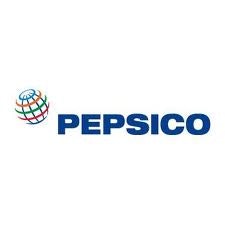Is PepsiCo, Inc. (NYSE:PEP) the right pick for your portfolio? Hedge funds are in a pessimistic mood. The number of bullish hedge fund bets fell by 1 recently.
If you’d ask most stock holders, hedge funds are assumed to be underperforming, outdated investment vehicles of yesteryear. While there are more than 8000 funds with their doors open at present, we at Insider Monkey look at the moguls of this club, around 450 funds. It is widely believed that this group controls the lion’s share of the smart money’s total capital, and by watching their highest performing picks, we have figured out a number of investment strategies that have historically outperformed the broader indices. Our small-cap hedge fund strategy outpaced the S&P 500 index by 18 percentage points per annum for a decade in our back tests, and since we’ve began to sharing our picks with our subscribers at the end of August 2012, we have outpaced the S&P 500 index by 23.3 percentage points in 8 months (see the details here).
Just as integral, bullish insider trading activity is another way to parse down the stock market universe. Just as you’d expect, there are a variety of incentives for a corporate insider to downsize shares of his or her company, but just one, very obvious reason why they would buy. Several academic studies have demonstrated the valuable potential of this strategy if “monkeys” understand what to do (learn more here).
With all of this in mind, it’s important to take a peek at the recent action surrounding PepsiCo, Inc. (NYSE:PEP).
What does the smart money think about PepsiCo, Inc. (NYSE:PEP)?
At Q1’s end, a total of 47 of the hedge funds we track were bullish in this stock, a change of -2% from the first quarter. With hedgies’ capital changing hands, there exists an “upper tier” of key hedge fund managers who were upping their stakes meaningfully.

Seeing as PepsiCo, Inc. (NYSE:PEP) has witnessed a declination in interest from the entirety of the hedge funds we track, it’s easy to see that there were a few fund managers that decided to sell off their positions entirely heading into Q2. Intriguingly, Ralph V. Whitworth’s Relational Investors said goodbye to the largest position of the 450+ funds we key on, worth an estimated $519.3 million in stock.. Howard Guberman’s fund, Gruss Asset Management, also dropped its call options., about $83.8 million worth. These bearish behaviors are important to note, as aggregate hedge fund interest was cut by 1 funds heading into Q2.
Insider trading activity in PepsiCo, Inc. (NYSE:PEP)
Insider purchases made by high-level executives is most useful when the primary stock in question has seen transactions within the past six months. Over the last 180-day time period, PepsiCo, Inc. (NYSE:PEP) has seen 1 unique insiders buying, and 9 insider sales (see the details of insider trades here).
With the results exhibited by the aforementioned strategies, retail investors should always keep an eye on hedge fund and insider trading activity, and PepsiCo, Inc. (NYSE:PEP) applies perfectly to this mantra.





